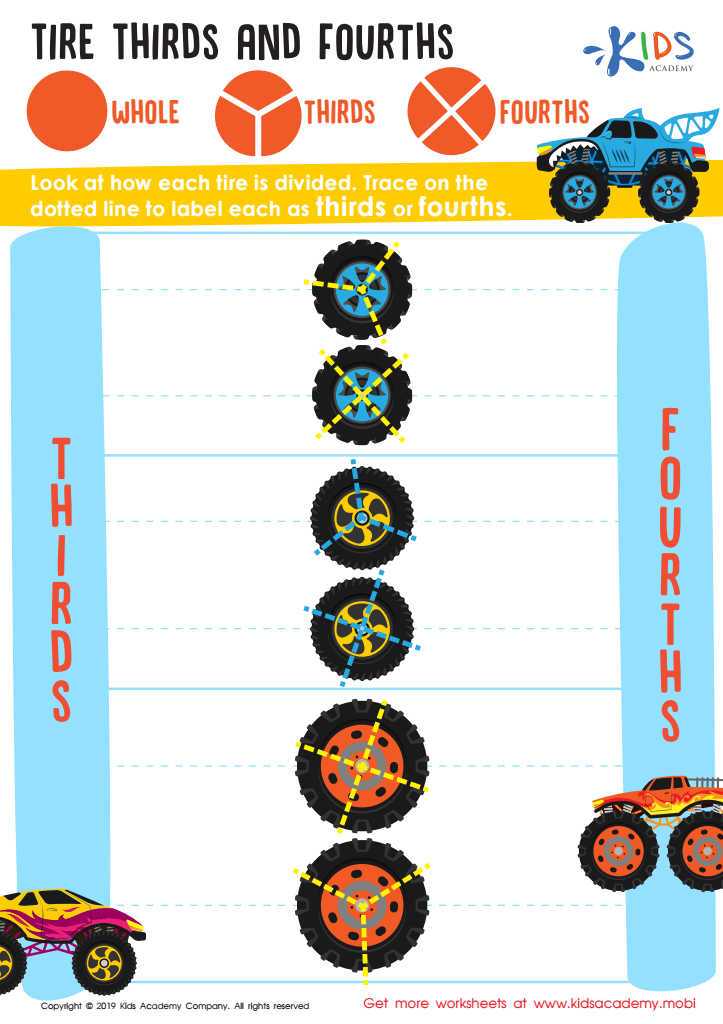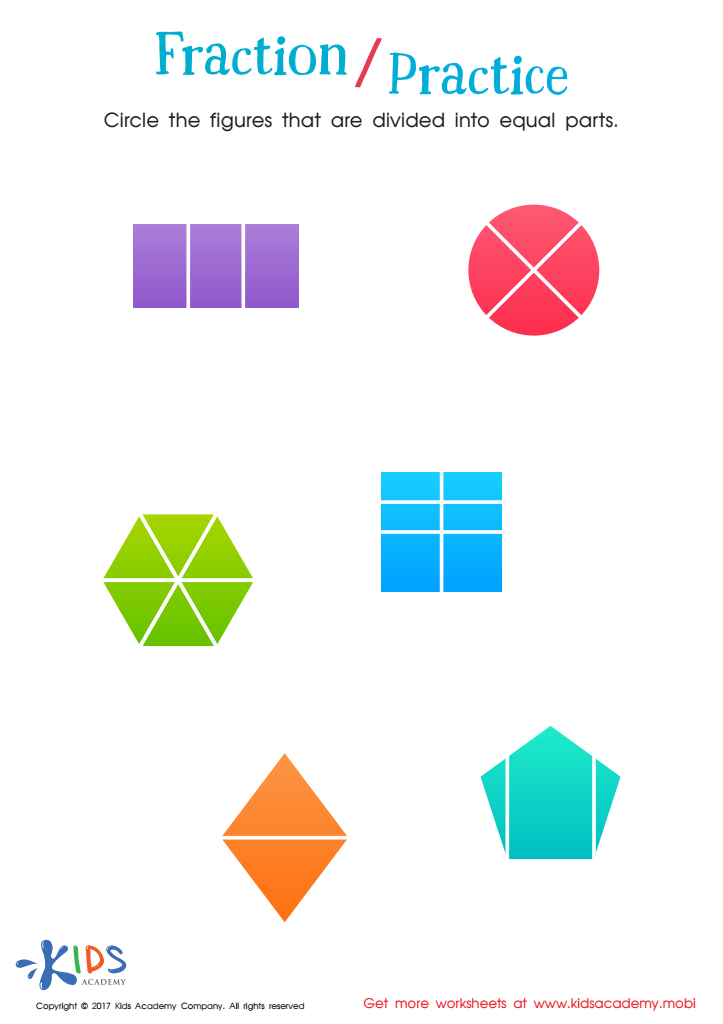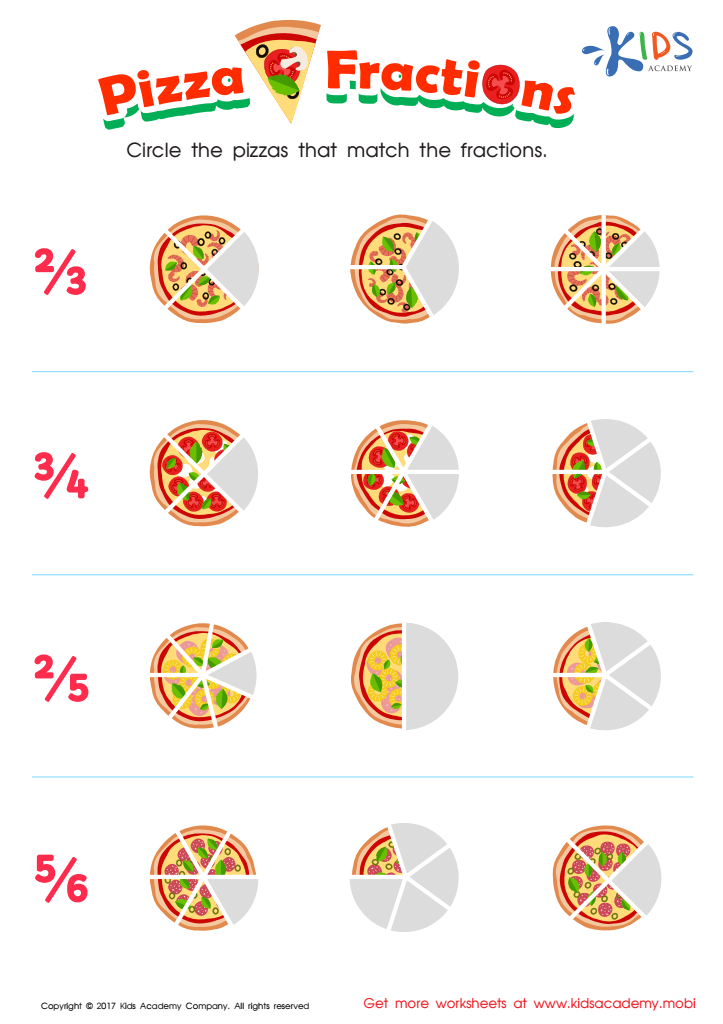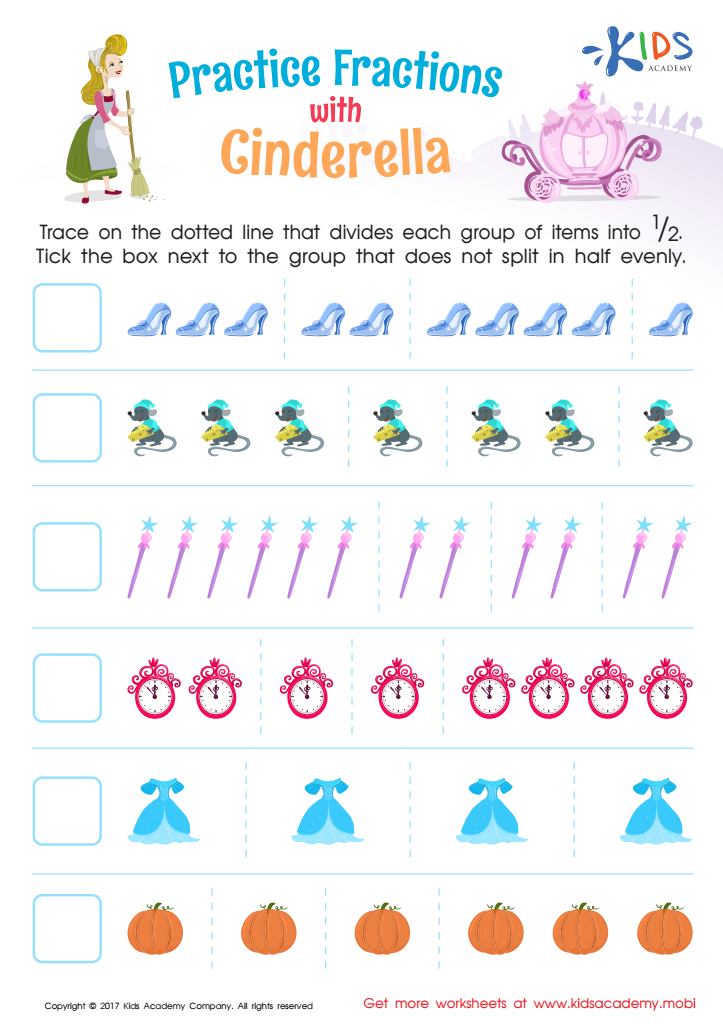Comparing Fractions Extra Challenge Math Worksheets for Ages 7-9
4 filtered results
-
From - To
Challenge your child's math skills with our "Comparing Fractions Extra Challenge Math Worksheets for Ages 7-9." These engaging worksheets provide a fun, interactive way to master comparing fractions. Designed to enhance mathematical understanding, each worksheet includes a variety of problems that promote critical thinking and problem-solving skills. Perfect for young learners eager to explore fractions, these activities will keep kids motivated and excited about math. Aligned with common education standards, these worksheets are ideal for classroom use or additional home practice. Help your child conquer fractions and build a strong math foundation with these extra challenge activities!


Tire Thirds and Fourths Worksheet


Fractions: Shapes Worksheet


Fractions: Pizza Printable


Fractions: Cinderella Printable
Comparing fractions is a foundational math skill crucial for children's overall mathematical development, especially for ages 7-9. During this period, children transition from basic arithmetic to more complex concepts like fractions. Introducing an Extra Challenge Math such as comparing fractions provides numerous benefits for both parents and teachers.
First, comparing fractions builds critical thinking and problem-solving skills. As students grapple with comparing different-sized numerators and denominators, they learn to analyze relationships, recognize patterns, and make informed decisions. This deepens their overall number sense, which is essential for higher-level math and everyday situations.
Second, mastering this task lays the groundwork for future math topics, including ratios, proportions, algebra, and even geometry. A strong understanding of fractions will make it easier for children to grasp these advanced concepts later in their education, providing a seamless and confident progression in their math journey.
Furthermore, tackling challenging math problems can significantly boost a child's confidence and resilience. It encourages a growth mindset where mistakes are seen as learning opportunities, fostering a positive attitude towards math. This can influence a child's academic performance positively and instill a lifelong love of learning.
Lastly, for teachers and parents, focusing on comparing fractions allows them to identify and address specific areas where students may struggle, providing targeted support to ensure no child is left behind in understanding these essential skills.
 Assign to My Students
Assign to My Students





















